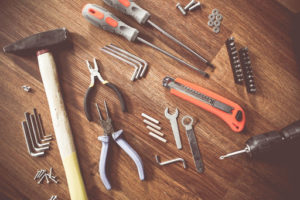HVAC Repair vs. Replacement: Which Do You Need?

Having trouble with the performance of your heating and cooling system? At TemperaturePro, solving your HVAC problems is our #1 goal. We know how confusing it can be to know what the right step is when it comes to heating and air system maintenance.
Below, our HVAC professionals have provided a guide featuring several tell-tale signs that your unit needs to be serviced. We’ll also cover crucial questions you need to ask yourself and your service provider when it comes to evaluating your HVAC needs.
Signs You May Need a Repair or Replacement
- Debris and Humidity: Your HVAC unit’s job is not only to cool and heat, but also to clean and purify air that enters your home. If you are noticing more dust, pet dander, or dirt around the house than normal, as well as higher humidity levels, then there could be an issue. This is an indicator of low efficiency for your HVAC system, meaning it might be time to consider an inspection or replacement.
- Noise Levels: AC units that are functioning properly typically run with little to no sound. If you’re starting to hear unusual sounds, such as grinding or squeaking, call one of Temperature Pro’s certified technicians to come take a look.
- Odors: The same can be said for odors. Issues with odors can range in seriousness from dust burning to moldy ducts and melting wires.
- Getting Your Money’s Worth: If you’re noticing a steady or even steep increase in energy spending, there may be an issue with AC unit efficiency.
What You Should Ask Yourself

Am I safe? Safety is more than likely your top priority when it comes to determining your need for a repair versus replacement. If your system is presenting a safety hazard, such as a damaged or cracked heat exchanger on your furnace (which could cause carbon monoxide leaks), it would be in your best interest to invest in a completely new system.
How long have I had this unit? The average lifespan of a cooling unit is 10-15 years, while the average lifespan of a heating unit is 15-20 years. To find the installation date, check on the outside of your unit, or within the chamber door. If your units are coming to the end of their functionality period, it might be time to consider replacing instead of repairing.
Does this happen often? If you find yourself constantly calling and scheduling repairs, consider the reality of repair costs piling up and eventually becoming less cost effective than a replacement.
When was the last time I replaced my filters? Low efficiency with heating and cooling processes can be caused by clogged air filters. Make sure you are replacing your filters at least once a month.
What To Ask Your Technicians

What’s actually broken? Once your technician finds out what the root cause of your HVAC issue is, it will be much easier to determine the pros and cons of a repair versus a replacement. For example, if the problem lies within a crucial or complicated part, such as the compressor, you’re better off replacing. On the other hand, if there is simply a minor issue, such as faulty electrical wires, a repair would be much more cost effective.
What kind of refrigerant is my unit using? R-22 refrigerant, or Freon, is being phased out by the federal government as an effort to conserve energy nationwide. This is making Freon costs skyrocket, and creates an increased urgency to replace your unit.
Who Can Help Me with Repairs and Replacements?
TemperaturePro can ensure reliable, energy-efficient heating and cooling services so you are fully covered and remain comfortable in your home or business. We promise to provide the most affordable and reliable repair, installation, and maintenance services. Call us for a free estimate or to schedule an appointment. We’re here for you!






